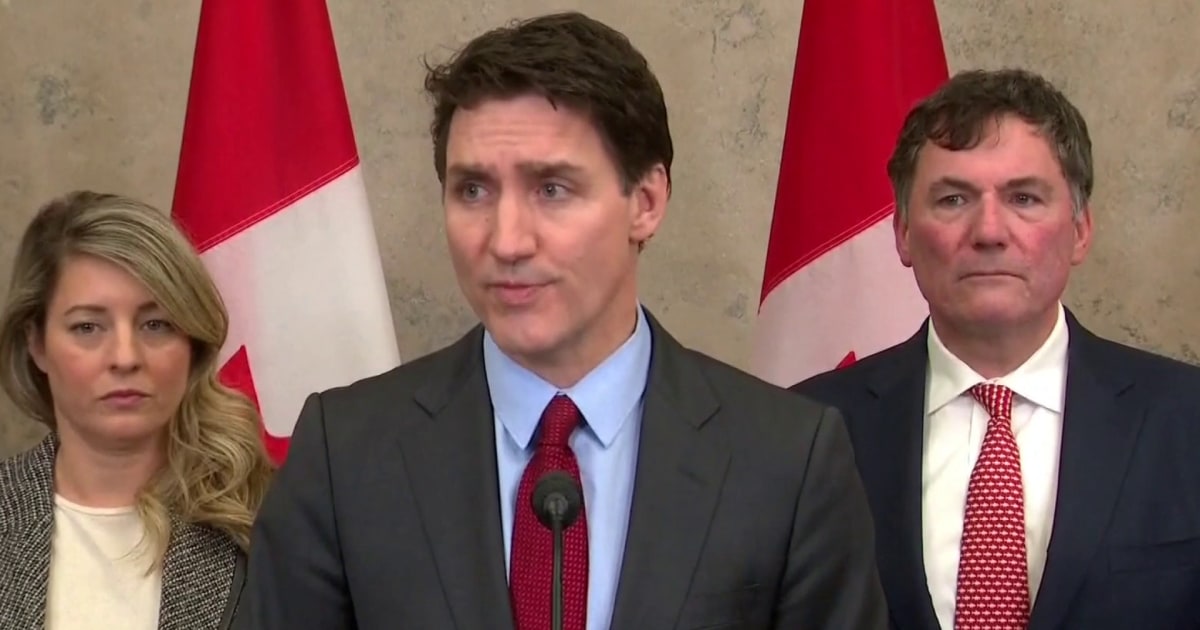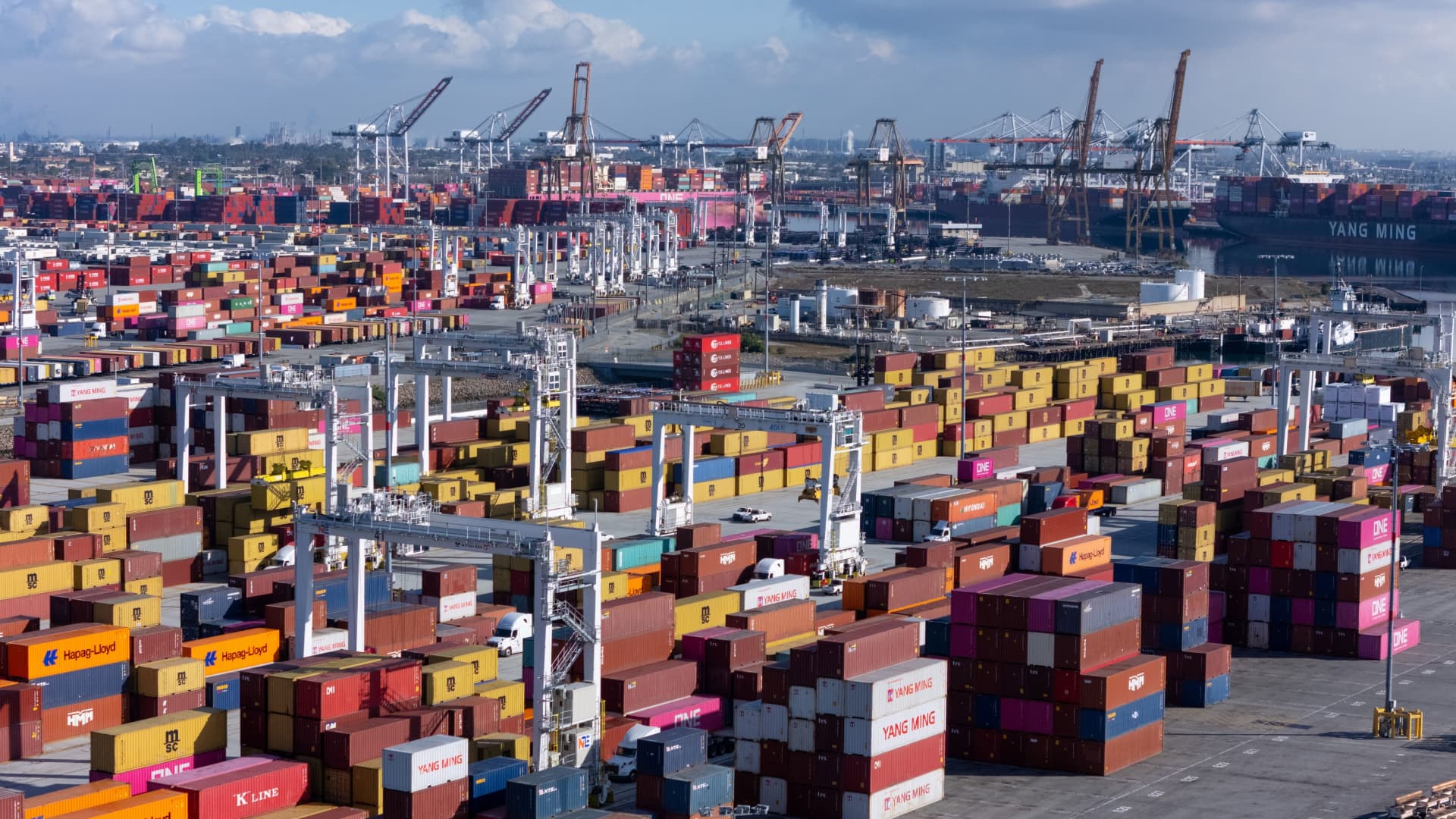Trudeau’s Bold Response: Canada Unleashes Retaliatory Tariffs on U.S. Imports
In a striking response to escalating trade tensions, Canadian Prime Minister Justin Trudeau has announced a series of retaliatory tariffs on U.S. imports. This decisive move comes in the wake of an executive order signed by President Trump that imposed tariffs on Canadian goods. As the two countries grapple with the implications of these economic sanctions, many are left wondering about the future of U.S.-Canada relations and the broader economic landscape.
The Context of the Tariffs
The announcement of retaliatory tariffs signifies a critical point in the longstanding economic relationship between Canada and the United States. Historically, the two nations have enjoyed a close trading partnership, characterized by mutual cooperation and economic interdependence. However, recent years have seen increasing friction, particularly surrounding issues of trade and tariffs.
Trudeau’s government has expressed concerns that the U.S. tariffs are not only counterproductive but also detrimental to Canadian industries. The Canadian response aims to protect domestic businesses and jobs from what they view as an unfair economic attack. This has led to a reevaluation of trade policies and a call for a more assertive stance on international trade.
The Details of the Retaliatory Tariffs
In his announcement, Trudeau outlined specific goods that would be subject to tariffs, including:
- Steel and aluminum products
- Consumer electronics
- Various agricultural products, such as dairy and meat
- Wood and lumber products
The tariffs are expected to range from 10% to 25% depending on the product category. This escalation not only affects the import costs for U.S. goods but also raises the stakes for Canadian businesses that rely on cross-border trade.
Analyzing the Economic Implications
The retaliatory tariffs are likely to have several significant economic implications for both countries:
- Increased Costs for Consumers: Canadian consumers may face higher prices for U.S. products, which could impact spending behavior.
- Strain on Relations: Ongoing trade disputes can lead to a deterioration of diplomatic relations, affecting not just trade but also cooperation on other important issues.
- Potential for Job Losses: Industries that rely heavily on U.S. imports may experience job losses or reduced profitability, leading to broader economic challenges.
- Impact on Exporters: Canadian exporters may also find it more challenging to access the U.S. market, leading to lost opportunities for growth.
Despite these potential downsides, Trudeau’s government remains optimistic that these tariffs could compel the U.S. to reconsider its approach to trade. The hope is that by standing firm, Canada can negotiate a more favorable outcome in future trade discussions.
The Political Landscape
Politically, Trudeau’s bold response has garnered mixed reactions within Canada. Some view it as a necessary step to protect Canadian interests, while others criticize it as a potential escalation that could lead to further economic strain. Meanwhile, opposition parties are calling for a more diplomatic approach, emphasizing the importance of maintaining a positive relationship with the U.S.
In the United States, reactions have also been varied. Some lawmakers support the administration’s tough stance on trade, arguing that it is necessary to protect American jobs. Others warn that such policies could backfire, leading to a trade war that ultimately harms both economies.
Long-Term Effects on U.S.-Canada Relations
As the two nations navigate these turbulent waters, the long-term effects on U.S.-Canada relations remain uncertain. The trade relationship between the two countries is not just significant for their economies but also for their geopolitical standing in the world.
Historically, the U.S. and Canada have collaborated on a range of issues from environmental policy to national security. An escalation in trade tensions could jeopardize this collaborative spirit, leading to a more adversarial relationship. However, both countries have a vested interest in maintaining a stable and prosperous partnership, which could ultimately lead to negotiations and compromises over time.
The Role of Public Sentiment
Public sentiment in both countries will play a crucial role in shaping the future of these trade relations. In Canada, many citizens support Trudeau’s efforts to protect Canadian industries and jobs. Conversely, in the U.S., there is a growing awareness of the interconnectedness of the two economies, with many citizens recognizing that trade disputes can harm local businesses.
Social media and public discourse are likely to influence policymakers on both sides. As citizens express their opinions, there may be increased pressure on leaders to find common ground and resolve trade disputes amicably.
Looking Ahead: A Path to Resolution
While the immediate future may seem bleak with the implementation of these tariffs, there is hope for resolution. History shows that trade disputes often lead to negotiations, and both Canada and the U.S. have much to gain from a cooperative approach. Key areas for potential negotiations could include:
- Reducing tariffs on specific goods
- Establishing clearer guidelines for trade practices
- Enhancing cooperation on shared economic interests
In conclusion, Trudeau’s bold response in the form of retaliatory tariffs on U.S. imports marks a significant turning point in U.S.-Canada relations. While the road ahead may be fraught with challenges, the mutual benefits of cooperation offer a glimmer of hope for the future. As both countries navigate this complex landscape, it will be vital for leaders to prioritize dialogue, diplomacy, and collaboration to foster a prosperous economic relationship that benefits both nations.
See more CCTV News Daily



